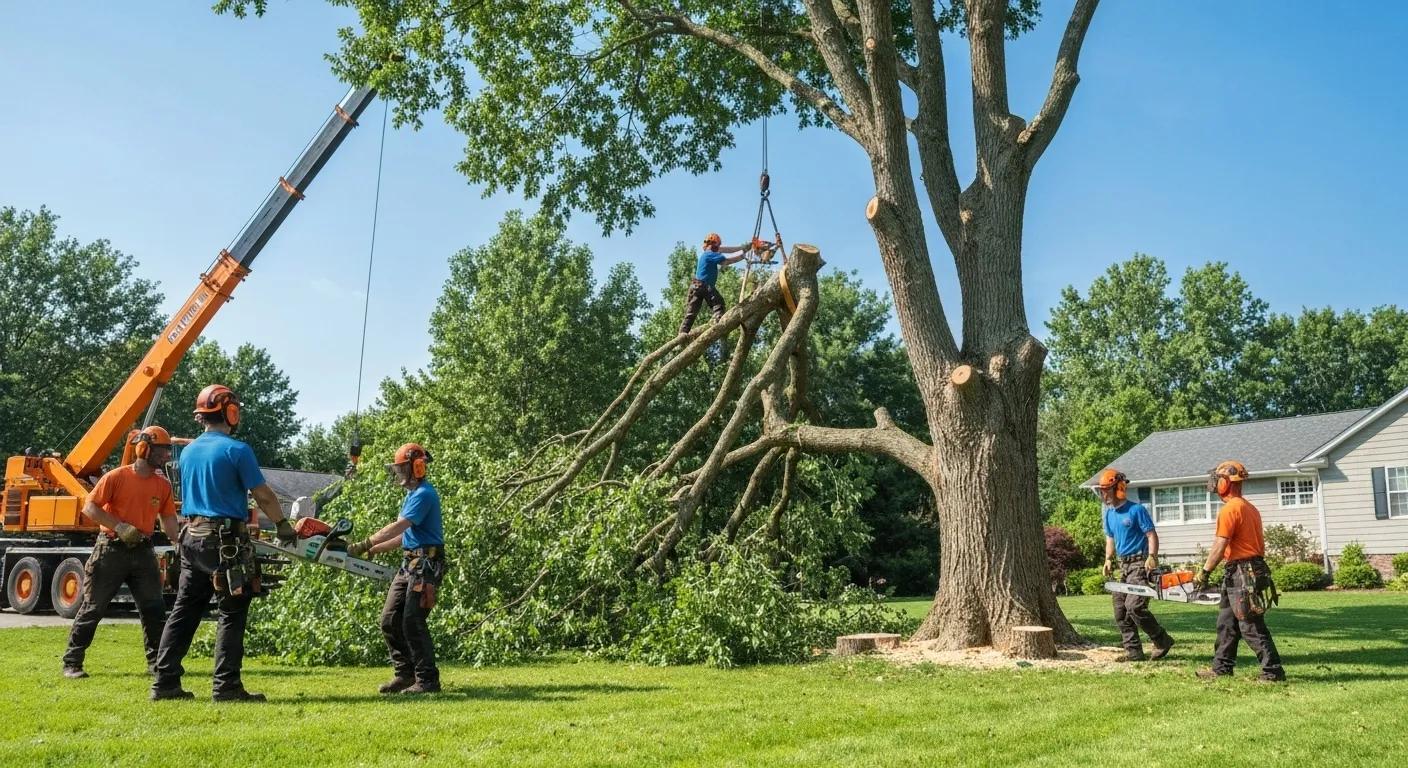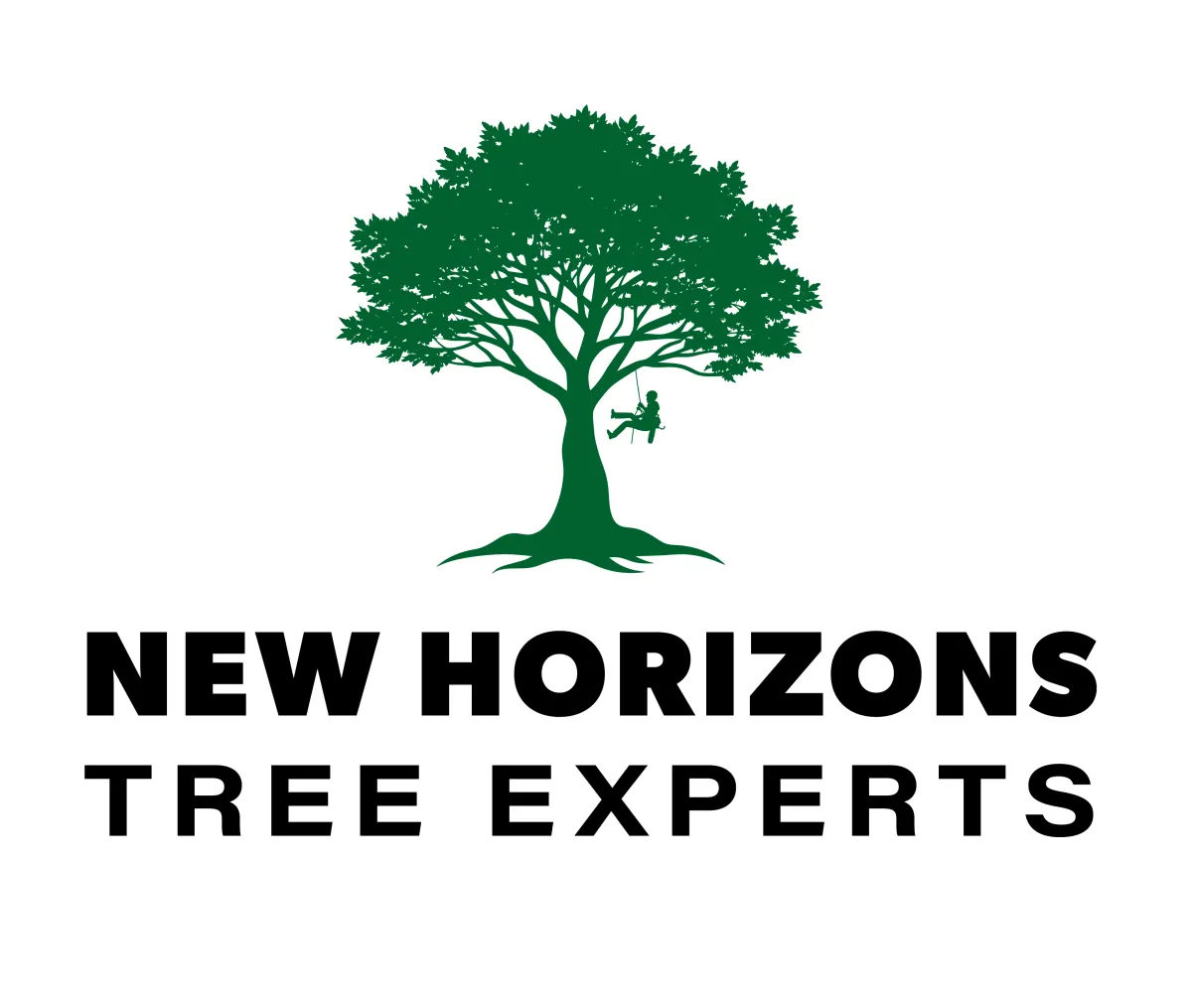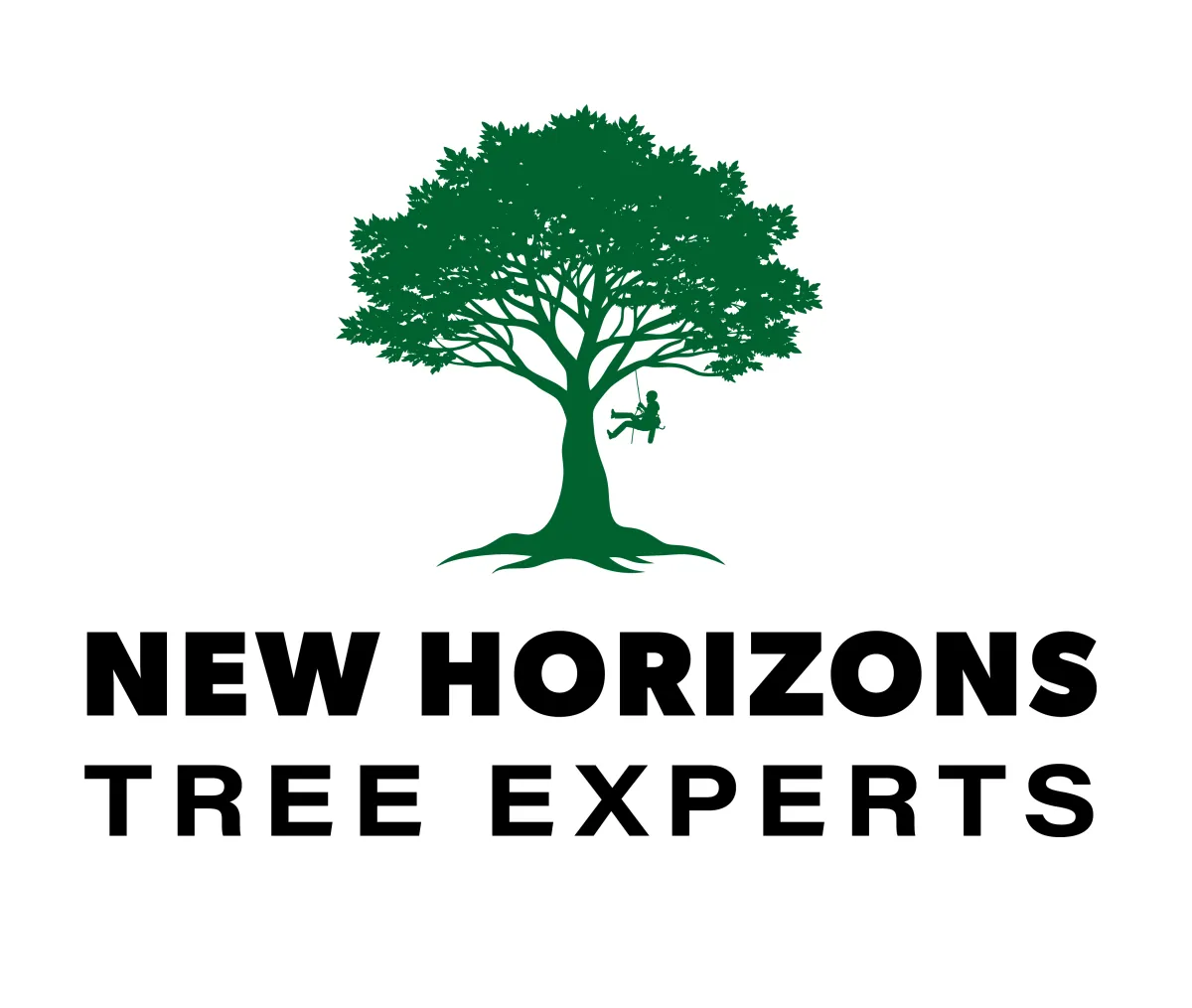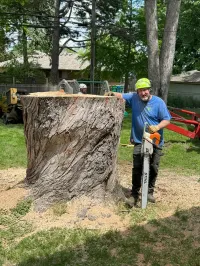Welcome to our Blog
The New Horizons Tree Experts Blog

Professional Tree Removal Services in St. Cloud, MN
Professional Tree Removal Services in St. Cloud, MN: Expert Solutions for Homeowners and Businesses
Severe weather and hidden tree hazards place properties at risk across St. Cloud, MN, and prompt removal safeguards both lives and investments. This guide delivers actionable insights on emergency tree removal, hazardous tree mitigation, stump grinding benefits, ISA Certified Arborist expertise, pruning and trimming practices, Emerald Ash Borer treatment, and transparent cost and tree care support. You’ll learn how New Horizons Tree Experts combines 24/7 rapid response, precision techniques near structures, advanced grinding equipment, and certified arborist assessments to protect homes and businesses throughout St. Cloud, the Twin Cities, and surrounding counties. Let’s begin by exploring the emergency tree removal services that secure your property at a moment’s notice.
What Emergency Tree Removal Services Are Available in St. Cloud, MN?

Emergency tree removal addresses urgent situations where fallen or unstable trees threaten safety and property. By deploying certified arborists and specialized crews, rapid removal prevents further damage and restores safe access. These services include immediate site assessment, limb reduction, complete tree removal, debris hauling, and storm damage cleanup—all designed to minimize risk and disruption.
When Is Emergency Tree Removal Necessary?
Emergency removal is required whenever storm force winds, lightning strikes, or root failure create imminent hazards.
Fallen trees blocking driveways or roadways after severe storms.
Leaning trunks threatening power lines or rooftops.
Uprooted roots destabilizing adjacent trees.
Cracked or split limbs poised to collapse onto structures.
Each scenario demands prompt intervention to prevent injury and property loss, leading naturally to how New Horizons Tree Experts delivers round-the-clock assistance.
How Does New Horizons Provide 24/7 Emergency Tree Removal?
New Horizons Tree Experts maintains an on-call crew equipped with chainsaws, chippers, cranes, and safety gear to respond within hours of a call. Certified arborists perform rapid site assessments, design safe removal plans, and deploy rigging systems tailored to tight spaces. This continuous readiness ensures trees are removed efficiently without compromising adjacent structures, and sets the stage for comprehensive storm damage cleanup.
What Are Common Storm Damage Cleanup Services Included?
Storm damage cleanup restores landscape safety and curb appeal after emergency removal. Crews clear fallen branches, grind accessible stumps, haul debris to recycling centers, and inspect remaining trees for hidden damage.
Limb chipping and wood recycling
Stump grinding of accessible roots
Site grading and lawn restoration
Hazard reassessment for remaining vegetation
By completing cleanup in tandem with removal, New Horizons ensures your property transitions smoothly from emergency response to restored condition and prepares you for longer-term tree care solutions.
How Do Hazardous Tree Removal Services Protect Your Property in St. Cloud?
Hazardous tree service removal targets diseased, damaged, or structurally compromised trees that pose ongoing threats. By identifying internal decay, root rot, or dangerous lean angles, certified arborists remove only the risk elements while preserving healthy specimens and shielding nearby buildings from falling debris.
Each attribute → indicator → risk level assessment enables arborists to prioritize removals that safeguard properties and leads into safe execution near structures.
How Is Hazardous Tree Removal Safely Executed Near Structures?
Rigging techniques and sectional dismantling remove hazardous trees in tight tolerances. Arborists anchor lowering lines to guide heavy sections, use crane lifts in constrained yards, and erect protection barriers around roofs and windows. This precision approach prevents collateral damage and transitions seamlessly into case-study insights on local hazardous removals.
Can You See a Case Study of Hazardous Tree Removal in St. Cloud?
A recent project in north St. Cloud involved a large oak leaning toward a historic garage. After sonic tomography confirmed internal decay, the New Horizons crew rigged the canopy to lower each section by rope. The trunk was removed in controlled segments, and the site was graded for lawn restoration. This case exemplifies meticulous planning and execution that homeowners and businesses rely on when hazards threaten their tree care.
What Are the Benefits and Process of Stump Grinding Services in St. Cloud, MN?

Stump grinding eliminates buried wood remnants by grinding the stump into chips below ground level, promoting regrowth and preventing pest infestation. Advanced grinders access tight spaces, preserve surrounding landscaping, and accelerate project completion—unlike full stump removal, which can be invasive and disruptive.
Grinding’s focused approach removes visible hazards and readies the site for planting or construction without the soil upheaval of removal.
Why Is Stump Grinding Essential After Tree Removal?
Grinding stumps mitigates tripping hazards, prevents insect infestation in decaying wood, and streamlines site restoration. By eliminating underground stubs, properties regain full usability and future planting areas remain clear, directly supporting landscape health and aesthetics.
What Factors Affect Stump Grinding Costs in St. Cloud?
Grinding costs vary based on:
Stump diameter and root spread.
Access difficulty in tight yards.
Number of stumps and total project area.
Soil conditions and presence of rocks.
Understanding these cost drivers helps homeowners plan budgets and transitions into the value of certified arborist assessments for precise estimates.
Why Choose ISA Certified Arborist Services for Tree Care in St. Cloud, MN?
What Qualifications Do ISA Certified Arborists Hold?
Academic study in arboriculture or forestry.
Passed the ISA certification exam covering tree identification, soil management, and risk assessment.
Maintained continuing education credits to stay current on best practices.
ISA Certification and Arborist Expertise
ISA Certified Arborists undergo rigorous training and testing in tree science, safety protocols, and hazard assessment, ensuring adherence to industry best practices. Their expertise is crucial for making informed decisions about tree care, removal, and overall landscape health.
International Society of Arboriculture, "ISA Certified Arborist"
How Do Arborists Assess Tree Health and Safety?
Arborists conduct visual inspections, sonic or resistograph decay testing, and soil compaction analysis. They chart crown structure, check for pests like Emerald Ash Borer, and recommend pruning, cabling, or removal as needed. This thorough assessment precedes pruning and trimming practices that sustain tree health.
What Arborist Services Complement Tree Removal?
Structural pruning and canopy thinning.
Soil amendment and root aeration.
Cabling and bracing for at-risk limbs.
Disease diagnosis and integrated pest management.
These services foster resilient landscapes and lead directly into pruning and trimming best practices.
How Does Professional Tree Pruning and Trimming Improve Tree Health in St. Cloud?
Pruning and trimming remove deadwood, balance canopy weight, and enhance sunlight penetration, which strengthens tree structure and reduces storm damage risk. By selectively cutting branches, arborists promote healthy growth patterns and aesthetic appeal across residential and commercial tree care properties.
What Are the Differences Between Tree Pruning and Shrub Pruning?
Pruning and shrub trimming each follow specific objectives:
Tree Pruning focuses on structural alignment and safety, removing large limbs and promoting vertical growth.
Shrub Pruning shapes dense foliage for mulch beds, emphasizing form and flowering potential.
These distinct approaches ensure each plant type receives tailored care and flows into optimal timing considerations.
When Is Tree Trimming Recommended for Safety and Aesthetics?
Timely trimming is advised:
Late winter to early spring before bud break.
After storm damage to remove broken limbs.
When limbs overhang roofs or obstruct power lines.
Proper scheduling supports both healthy regeneration and neighbor-friendly aesthetics, and connects to how pruning prevents hazards.
How Does Pruning Support Hazardous Tree Prevention?
Removing dead or rubbing limbs reduces weight imbalance and disease spread, thereby lowering collapse risk under heavy snow or wind. Pruning also improves structural integrity, interrupting cycles that lead to hazardous conditions.
What Should You Know About Emerald Ash Borer Treatment and Ash Tree Removal in St. Cloud, MN?
The Emerald Ash Borer (EAB) is an invasive pest that bores S-shaped tunnels under ash bark, disrupting nutrient flow and leading to canopy dieback.
Emerald Ash Borer (EAB) Identification and Treatment
The Emerald Ash Borer (EAB) is an invasive pest that can cause significant damage to ash trees. Early detection and treatment are crucial for preserving urban ash canopies, while severely infested trees may require removal to protect surrounding vegetation.
United States Department of Agriculture, "Emerald Ash Borer" (2024)
How Can You Identify Emerald Ash Borer Infestation Signs?
Key visual signs of EAB include:
D-shaped exit holes on bark.
S-shaped galleries under peeled bark.
Crown thinning and epicormic shoots.
Increased woodpecker activity on trunks.
Spotting these indicators early informs timely treatment versus removal decisions.
What Treatment Options Are Available for Emerald Ash Borer?
Treatment strategies range from:
Systemic insecticide injections delivered by certified arborists.
Soil drenches with systemic compounds targeting larval stages.
Tree wraps and trunk sprays for localized control.
These options can arrest infestations when applied promptly and segue into removal criteria for advanced damage.
When Is Ash Tree Removal Necessary Due to EAB Damage?
Removal is essential when:
Over 50% canopy loss has occurred.
Structural integrity is compromised by extensive tunneling.
Multiple years of treatment fail to halt decline.
Addressing these thresholds protects surrounding trees and prepares sites for replacement planting.
What Are the Typical Costs and Permit Requirements for Tree Removal in St. Cloud, MN?
Tree Removal Costs and Permit Requirements
Professional tree removal costs vary based on factors such as tree size, location, and complexity. Local permits are often required to ensure compliance with municipal ordinances, and transparent pricing and permit facilitation streamline projects.
City of St. Cloud, MN, "Tree Removal Permit Information" (2024)
How Much Does Professional Tree Removal Cost in St. Cloud?
Homeowner budgets typically range from $500 for small trees to $3,000 or more for large, hazardous specimens. Cost considerations include labor, equipment deployment, disposal fees, and safety insurance coverage.
What Factors Influence Tree Removal and Stump Grinding Prices?
Primary price drivers are:
Trunk diameter and height.
Proximity to structures or power lines.
Equipment requirements (crane vs. aerial lift).
Permit fees and disposal costs.
Knowing these factors secures realistic estimates and connects to permit requirements.
Do You Need a Permit for Tree Removal in St. Cloud?
Yes, St. Cloud regulations require permits for removing significant canopy trees in residential zones. Permit approval confirms compliance with municipal tree preservation ordinances and avoids fines.
How Can New Horizons Assist with Tree Removal Permits?
New Horizons Tree Experts navigates local permitting by preparing applications, submitting tree inventories, and coordinating inspections with city planners. This end-to-end service minimizes administrative burden and accelerates project start dates with full regulatory compliance.
Four decades of combined expertise, certified arborist credentials, and a safety-first culture position New Horizons Tree Experts as St. Cloud’s leading choice for professional tree removal, ensuring your property remains secure, attractive, and ordinance-compliant. Whether you face emergency storm damage, hazardous limbs near structures, or invasive Emerald Ash Borer infestations, our comprehensive services—from rapid 24/7 response to certified assessments and permit support—deliver peace of mind and lasting value.
Learn more about our process and see our team in action in this real-world tree removal case study.
To schedule a consultation or receive a free estimate, simply:
Call Chad at (612) 203-4309
Fill Out the online request form at https://newhorizonstreeexperts.com/contact-us
Proudly Serving Central Minnesota:
St. Cloud, Big Lake MN, Foley MN, St. Michael MN, Sauk Rapids MN, Elk River MN, Zimmerman MN, Buffalo MN, Monticello MN, Minneapolis MN, Plymouth MN, Maple Grove MN, Anoka MN, Blaine MN, Coon Rapids MN, and more!
Get A Quote
Click below or call for more info

Our Service Area:
St. Cloud, Foley, Sartell, Sauk Rapids, Clearwater, Clear Lake, Santiago, Becker, Elk River, Big Lake, Zimmerman, Buffalo, Monticello, St. Michael, Minneapolis, Plymouth, Maple Grove, Anoka, Blaine, Coon Rapids, & more!




